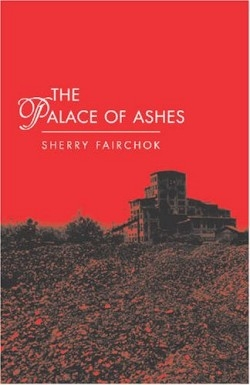
The Palace of Ashes
These lively poems press deeply into their places and the meanings of place. The
first section, shadowed by the mile-long piles of culm extracted from coal mines and the harsh realities of life in coal towns like Taylor, Pennsylvania, offers crisp glimpses of the struggles and resilience of mine families. The poet’s observations and reflections on her childhood are refreshingly direct and candid. “In the Kitchen” describes her female relatives, who “all smoked then”: “When Grandmother’s gas stove burner grew / a blue crown of flame, they all leaned into it / like the Supremes at a studio microphone.”
Later poems shift to consider a girl’s coming of age; in poems like “My Year as a Horse” and “The Other Side,” horses and birds are the most prominent images, connected with sexual awakening and the natural world beloved by the father. He is important as guide to bird watching and other matters, including “The Beauty of Exterior Plumbing,” which wryly considers the comparative ease of outdoor elimination for men: “I imagined a penis, that neat spigot; knew / if I squatted in the bushes, I’d soak my own socks. / I was made wrong for his great outdoorsÉ”
The unforced physical and emotional exactness of such passages distinguishes this book; Fairchok manages to be elegiac without sentimentality, to be reflective without bombast, to write of sexual undercurrents between father and daughter without sensationalism. The simplicity of her syntax and narratives does not prevent her from exploring complex emotional realities, especially her ambivalence about her own journey away from the coal town to Manhattan, where she encounters haunting reminders of her past life, such as a preserved mansion on Fifth Avenue built for a coal company executive.
“Each day in this city, I am becoming more and more like what I always was,” Fairchok writes. Her insistence on an accurate and deep reckoning of the places and people among which she has become who she is, and her reckless willingness to speak the story fully, energize this memorable first book of poems.
Reviewed by
Jeff Gundy
Disclosure: This article is not an endorsement, but a review. The publisher of this book provided free copies of the book to have their book reviewed by a professional reviewer. No fee was paid by the publisher for this review. Foreword Reviews only recommends books that we love. Foreword Magazine, Inc. is disclosing this in accordance with the Federal Trade Commission’s 16 CFR, Part 255.
